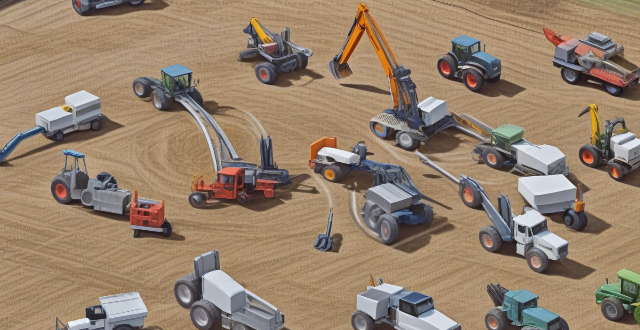Drive motors are crucial across industries for efficiency, reliability, and precision. In transportation, they power vehicles, aircraft, and railways. Manufacturing uses them in robotics, machinery, and printing. Construction and agriculture rely on them for heavy equipment and farm machinery. Consumer products like appliances and power tools also use drive motors, as do medical devices and prosthetics. Their significance lies in efficient energy conversion, reliable performance, and precise operation.

Industries Commonly Utilizing Drive Motors and Their Significance
Transportation Sector
- Automobiles: Drive motors, particularly electric ones in hybrid and fully electric vehicles, convert energy into motion. They offer benefits such as reduced emissions and improved fuel efficiency.
- Aircraft: Aviation uses sophisticated drive motors for propulsion and operational systems like landing gear and environmental control.
- Railways: Locomotives employ drive motors to pull carriages, with recent developments including electric and diesel variants for enhanced power and efficiency.
Manufacturing and Production
- Robotics: Industrial robots use drive motors for precise movements, critical in assembly lines and automation processes.
- Machinery: From conveyor belts to complex equipment, drive motors keep production moving smoothly, ensuring continuity and efficiency.
- Printing Industry: Printers utilize drive motors to move paper through the printing process, requiring precision and reliable operation.
Construction and Agriculture
- Construction Equipment: Machines like excavators and bulldozers rely on drive motors for heavy lifting and digging tasks.
- Farm Machinery: Tractors and harvesters use drive motors for propulsion and operating various farming implements.
- Forestry Equipment: Sawmills and wood chippers depend on drive motors to handle tough tasks, often in demanding conditions.
Consumer Products
- Appliances: Washing machines, refrigerators, and other household appliances contain drive motors for their various functions.
- Power Tools: Drills, saws, and other tools are powered by drive motors, making them versatile and powerful for DIY and professional tasks.
- Toys: Remote-controlled cars and drones incorporate miniature drive motors for movement and control.
Medical and Healthcare
- Prosthetics: Advanced prosthetic limbs use drive motors for natural movement simulation, greatly enhancing quality of life for users.
- Medical Equipment: MRI machines and surgical tools employ drive motors for precise operations and patient safety.
- Rehabilitation Devices: Machines used in physical therapy often have drive motors to assist in recovery exercises.
Why Drive Motors Are Crucial
- Efficiency: They convert energy into motion efficiently, reducing waste and operational costs.
- Reliability: When properly maintained, drive motors provide consistent performance essential for productivity.
- Precision: Particularly in manufacturing and medical applications, drive motors offer the accuracy needed for high-quality results.
Drive motors play a pivotal role across various industries, from transportation to healthcare, enhancing efficiency, reliability, and precision in numerous applications.